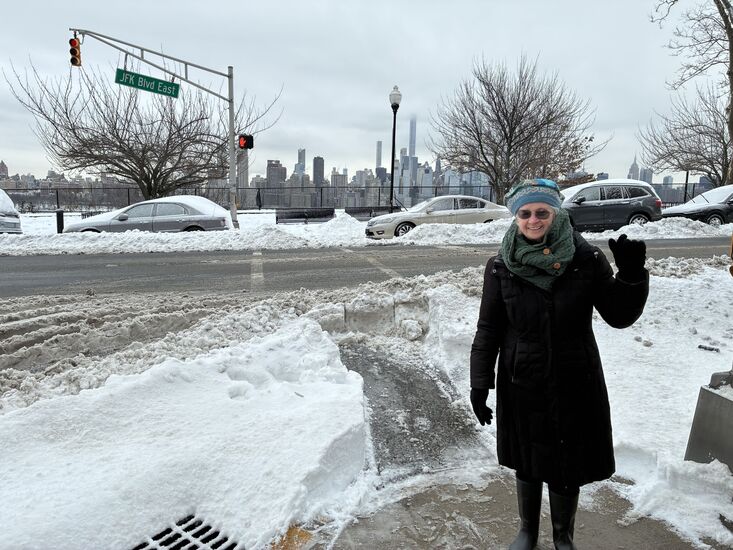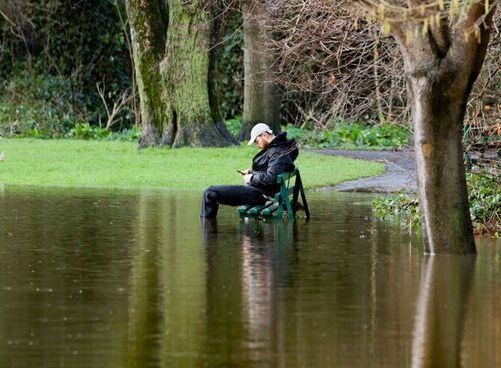Daniel O’Connell, a giant of 19th century politics, tends not to get the full attention that he deserves. For instance, while the Liberator’s work on Catholic Emancipation is broadly known, his campaigning on slavery, the subject of Christine Kinealy’s latest book, is less so.
“It is an amazing story,” the Drew University historian said. “I don’t agree with some of O’Connell’s political decisions. However, his record on international human rights was incredible; he spoke out on behalf of aborigines in Australia, Maoris in New Zealand and slaves throughout the world. He played a pivotal role in the ending of slavery in the British Empire in 1833. O’Connell was also a consistent opponent of slavery in the United States, which he described as ‘a blot on their democracy.’ American abolitionists, including William Lloyd Garrison and Frederick Douglass, described him as the greatest friend the black slave had. I agree.”
Her last but one, “War and Peace: Ireland Since the 1960s” marked a new departure: “It was difficult to write because so much of it related to my own personal history,” she said. “I was in Dublin at the time of the hunger strikes and moved to Belfast in the late 1980s.”
The prolific Kinealy is perhaps best known, though, for “This Great Calamity. The Irish Famine 1845-52,” which was first published in 1994 and reprinted with a new Introduction in 2006.
“I have written a few books. This was not planned; it just happened,” Kinealy said. “Most of them are located in the 1840s – the decade that most fascinates me. Of course, this period is dominated by the tragedy of the Famine.”
It was also an era of revolutionary upsurge in Europe. Her third last book, “Repeal and Revolution: 1848 in Ireland” (published in 2009), focused on one local angle of a Continent-wide phenomenon.
“My next book takes me back to the Famine. I am looking at private donations made during this tragedy,” she said. “Aid came from all over the world. Last week I was in the National Library in Dublin looking at copies of letters thanking the Sultan of Turkey for his donation in 1847. An uplifting aspect of the Famine.”
Her interest in Famine studies developed with her PhD at Trinity College Dublin on the Irish Poor Law. It was completed in 1985. The latest chapter of her academic career began with her relocation to New Jersey in 2007. “I am based in the [Drew University] Graduate School and we have a small, but thriving, master’s and doctorate program.”
Chief among her non-academic interests is soccer: she is a lifelong avid supporter of Liverpool FC. “Not a great season so far, but there is nothing like watching the beautiful game,” Kinealy said. “I recently read that Liam Neeson is also a fan.”
What is your writing
routine? Are there ideal conditions?
When I was younger I would write late into the night - until 3 or 4 a.m. I am now a morning person. I get up early – 5 or 6 a.m. – and work. Writing is a solitary pursuit and so a dog is an ideal companion. Taking him for a walk is a good way of clearing my head and giving me time to mull over things. And caffeine-rich coffee is my drug of choice.
What advice do you have for aspiring writers?
Be passionate.
Name three books that are memorable in terms of your reading pleasure.
“Wuthering Heights” by Emily Bronte (1847) – I love the Bronte sisters’ writings. This is a dark, yet smoldering, example of it. “The Picture of Dorian Gray” by Oscar Wilde (1891) – at his quotable best, but so much more than that. “The Ragged Trousered Philanthropists” by Robert Tressell (1914) – almost 100 years later, the political message remains pertinent.
What book are you currently reading?
A modern book – unusual for me. “The Imperfectionists” by Tom Rachman (2011). It is a quirky look at the private lives of journalists who work for an English-language paper in Rome. It is fun and portable (I have Kindle, but prefer to hold a “real” book in my hands).
My work reading is a “Transactions … of the Society of Friends during the Famine in Ireland” (1852) – both grim and inspiring.
Is there a book you wish you had written?
“Pride and Prejudice” by Jane Austen (1813) – delicious social observation, but, as with all of Austen’s work, it is beautifully crafted. Apparently, she would proofread and rewrite her books as many as 18 times. It shows. She is an example to writers everywhere.
Name a book that you were pleasantly surprised by.
“Ulysses” by James Joyce (1922) – I was surprised by how much fun it is to read, and by the layers of political commentary within it.
If you could meet one author, living or dead, who would it be?
Oscar Wilde – but only if he brings his mother, Speranza (a member of Young Ireland in the 1840s). Apart from their obvious intellectual attributes, they were both extremely sociable and kind – especially to aspiring writers. We could drink champagne and talk about the good old days in Dublin.
What book changed your life?
Politically, “The Ragged Trousered Philanthropists.” Professionally, “The Great Hunger” by Cecil Woodham-Smith. First published in 1962, yet still a must-read for anybody interested in the Famine.
What is your favorite spot in Ireland?
Only one? I lived in both Dublin and Belfast and love them both. I also love Derry. I have spent time in Wexford and Kerry, and love them. Mayo (my mum’s county) and Tipperary (my dad’s county) have special places in my heart. I also love the other 28 counties. My favorite spot is whichever place in Ireland I happen to be in.
You're Irish if . . .
(to paraphrase Oscar) even if you are in the gutter, still look for the stars.








